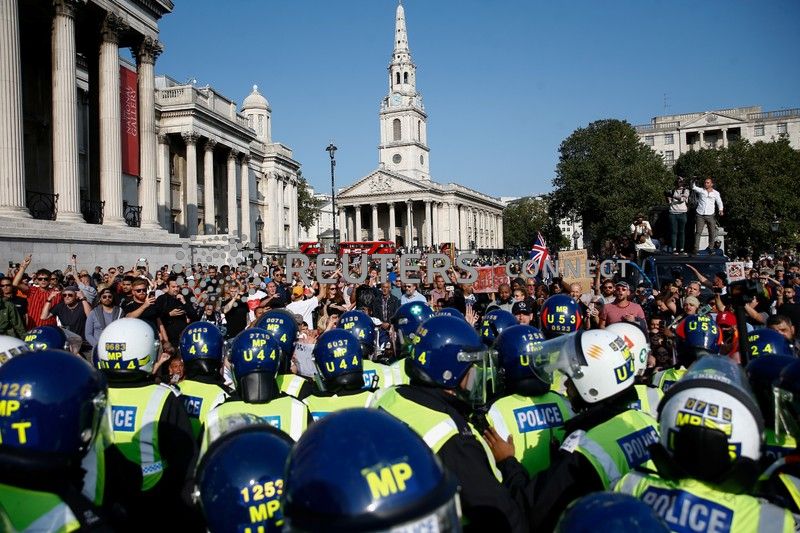LONDON (Reuters) – More than a thousand people gathered in central London on Saturday to protest against lockdown measures aimed at slowing the spread of the coronavirus, before the event was broken up by police.
The protest, which led to 32 arrests, came as Prime Minister Boris Johnson is considering whether to reimpose some lockdown restrictions across England.
Demonstrators carried banners saying “Covid is a hoax” and “My body, my choice: No to mandatory masks”, as well as chanting at police: “Choose your side”.
Police said protesters were ordered to leave Trafalgar Square on the grounds that the demonstration was putting those taking part and other members of the public at risk.
“This, coupled with pockets of hostility and outbreaks of violence towards officers, means we will now be taking enforcement action to disperse those who remain in the area,” London’s Metropolitan Police said in a statement.
Under laws introduced to slow the spread of infection, people in England are not allowed to gather in groups of more than six. There are exemptions for political protests, but only if organisers follow guidelines to reduce the risk of the disease spreading.
Organisers of previous anti-lockdown protests have been fined up to 10,000 pounds ($12,914).
Some of the protesters at Saturday’s event voiced opposition to compulsory vaccines, as well as more general mistrust of the government, the media and the World Health Organization.
Britain has suffered Europe’s highest death toll from coronavirus, with more than 41,000 deaths on the government’s preferred measure. National testing for the disease have not kept up with demand since schools reopened this month.
Rising case numbers in parts of Scotland, Wales and northern England have already led to local restrictions on people inviting friends to their homes, and reduced pub and restaurant opening hours.




